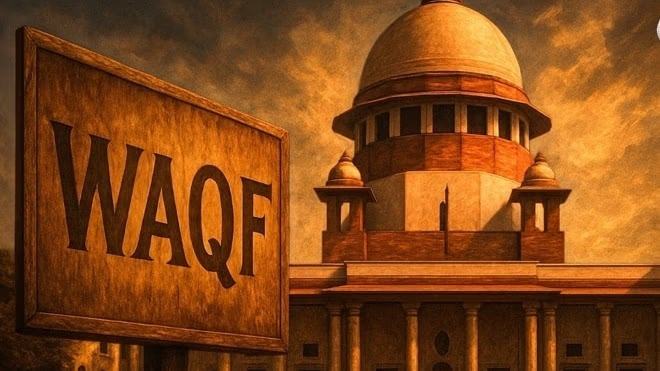On Monday, the Supreme Court deliberated on petitions challenging the constitutional validity of the Waqf Amendment Act. Chief Justice Sanjiv Khanna postponed the hearing, stating that a thorough hearing is essential before issuing an interim order.
The matter has been deferred until the next date of hearing. CJ Khanna is set to retire on May 13, with Justice B.R. Gavai succeeding him as the Chief Justice of India from May 14, continuing the proceedings on May 15.
Previously, on April 17, during hearings on these petitions, the court halted the denotification of Waqf properties and appointments in the Central Waqf Council, requesting a response from the government with time allotted for the petitioners to file a rejoinder.
What the Government's Affidavit Stated
The affidavit submitted by the central government defended the 'Waqf by User' under the Waqf Amendment Act. The Minority Affairs Ministry's extensive 1332-page affidavit referenced the provisions of former Waqf laws, emphasizing that the registration of properties under 'Waqf by User' has been mandatory since 1923. It asserted the Act of 2025 respects the faith and religious practices of Muslims.
This affidavit also claimed that post the 2013 amendment, there has been an expansion of 20 lakh acres in Waqf land. It accused misuse of Waqf provisions for seizing private and government properties and urged the Supreme Court to dismiss the petitions against the Waqf (Amendment) Act, expressing surprise at a 116% increase in the Auqaf area post-2013 amendment.
Response Affidavit Details
The All India Muslim Personal Law Board responded with a counter affidavit, questioning the validity of the central government's affidavit statistics, claiming the government is misleading the Supreme Court.




